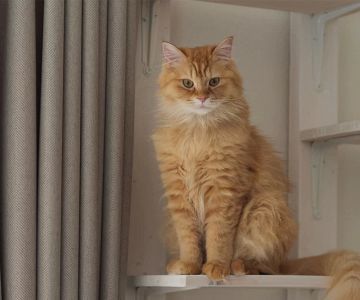Recognizing Signs of Anxiety or Stress in Cats
As a cat owner, it's easy to overlook certain behavioral changes in our pets. Cats are notorious for hiding their discomfort, which makes it difficult to pinpoint when they are stressed or anxious. However, understanding the signs of stress and anxiety in your cat is crucial for their well-being. I've been there, noticing subtle shifts in my cat's behavior, and wondered if it was just a phase or something more serious. Over time, I learned that paying attention to these signs can help prevent long-term problems.
Physical Symptoms of Stress in Cats
One of the first things you might notice in a stressed or anxious cat is a change in their physical behavior. Cats have an uncanny ability to mask their discomfort, but subtle signs often reveal the underlying issue. My cat, for example, started hiding more often, and when I looked closely, I noticed her fur was more matted than usual. Here are a few key physical symptoms of stress in cats:
- Excessive grooming or licking, leading to bald patches
- Changes in eating habits, either eating too much or too little
- Urinating outside the litter box
- Loss of appetite or sudden weight loss
- Pacing or restlessness
- Vomiting or diarrhea due to gastrointestinal upset
Behavioral Changes You Might Notice
When my cat started acting out of character, I found it concerning. She was always the calm, quiet type, but recently, she seemed more agitated, constantly on edge. Here are a few behavioral changes that are red flags for stress or anxiety:
- Hiding away or withdrawing from people and other pets
- Unexplained aggression or irritability, often triggered by harmless things
- Increased vocalization, such as meowing or growling more than usual
- Over-attention seeking behavior, like following you around constantly
- Changes in litter box habits, such as frequent accidents outside the box
Common Causes of Stress in Cats
Understanding what causes stress in your cat can be a game-changer. Stress in cats can stem from various sources, and it’s not always easy to identify right away. A change in routine, a new pet in the household, or even a move to a new home can unsettle a cat. I remember when we brought a new puppy home—my cat was visibly stressed for weeks. Here are some common stress triggers for cats:
- Changes in the household environment (new pets, new people, or moving)
- Loud noises (fireworks, thunderstorms, vacuum cleaners)
- Traveling, whether in a car or to a new place
- Lack of stimulation or boredom, especially in indoor cats
- Health problems or physical discomfort
How to Help Your Anxious or Stressed Cat
If you suspect your cat is stressed, don't worry—you can help them. There are several strategies I’ve found helpful for calming an anxious cat, and most of them are simple to implement. Here are some ways to reduce your cat’s stress and help them feel more comfortable:
1. Create a Safe Space for Your Cat
My first step when my cat started showing signs of anxiety was to create a safe, quiet space where she could retreat. Cats need a place where they can feel secure, away from the hustle and bustle of the household. This could be a cozy bed, a cat tree, or a designated room that they can call their own. Make sure it’s away from high-traffic areas, and add some of their favorite toys or blankets to make it feel inviting.
2. Keep a Consistent Routine
Cats thrive on routine. When I kept feeding and playtime consistent, my cat’s anxiety seemed to lessen. Try to stick to a regular schedule for feeding, cleaning the litter box, and playtime. Consistency will help your cat feel more in control of their environment and less stressed.
3. Provide Enrichment and Stimulation
One major factor in my cat’s anxiety was boredom. Indoor cats, in particular, need mental and physical stimulation to stay happy. I started offering a variety of interactive toys, including laser pointers and puzzle feeders, to keep her engaged. Even something as simple as a cardboard box can provide hours of entertainment and a place to hide when she feels overwhelmed.
4. Consider Natural Supplements or Products
For more severe cases of anxiety, you might want to consider natural remedies or products designed to calm stressed cats. I’ve had success using pheromone diffusers that mimic the comforting scent of a mother cat. There are also treats and supplements available that can help reduce anxiety in cats. Always consult with your veterinarian before introducing any new products or supplements to your cat’s routine.
5. Regular Vet Visits
Sometimes, stress can be a symptom of an underlying medical condition. My cat had a period of unexplained anxiety, and it turned out she was dealing with dental issues that were causing pain. If your cat's behavior changes suddenly or drastically, it’s a good idea to schedule a visit to the vet to rule out any health concerns. Regular vet check-ups can catch any potential issues early, ensuring your cat stays happy and healthy.
How I Overcame My Cat’s Anxiety
As I started following these steps, I noticed a gradual improvement in my cat’s behavior. She became more social, her eating habits normalized, and she seemed much calmer overall. One of the most rewarding experiences was seeing her regain her playful nature. It’s a reminder that with patience and care, we can help our furry companions feel more at ease.












